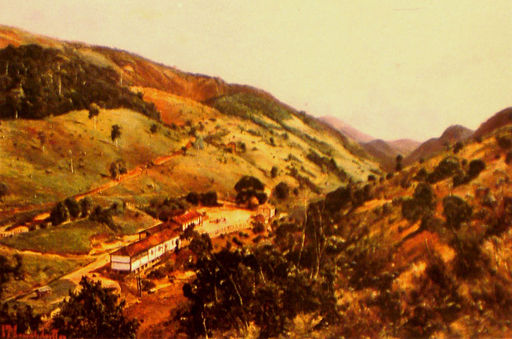 |
| Montana cowboys, c1910 |
These are from William Lacey Amy’s The Blue Wolf, about mysterious goings-on in the Cypress Hills of western Canada, and Gwendolen Overton’s The Heritage of Unrest about the cavalry and the Apaches. Once again I struck out a few times. If anybody knows the meaning of “wind city,” “The Last Carouse,” or “koon-tan,” leave a comment.
cheese = stop, leave off. “Cheese that cussing, do you hear?” Gwendolen Overton, The Heritage of Unrest.
Dougherty = a horse- or mule-drawn passenger wagon having doors on the side, transverse seats, and canvas sides that can be rolled down. “He had worked himself to such an implicit faith in the worst that he decided that the wide figure, heavily blue-veiled, and linen-dustered, on the back seat of the Dougherty was she.” Gwendolen Overton, The Heritage of Unrest.
 |
| Doukhobors pulling plow, Manitoba, 1899 |
fagging = to tire, weary. “It was his way to pick out the roughest possible path before him, to settle within himself that it was that of duty, and to follow it without fagging or complaint.” Gwendolen Overton, The Heritage of Unrest.
furbelow = flounce, ruffles, trimming on a woman’s garment. “I do not know the price of the latest frills and furbelows in London.” William Lacey Amy, The Blue Wolf.
| Woman in riding habit |
habit = a costume designed to be worn by a woman on horseback; riding-habit. “You’re not going to try to ride Ginger in a habit!” William Lacey Amy, The Blue Wolf.
Hamilcar = a general and statesman of Carthage, father of Hannibal. “It’s devilish exasperating, but it’s old as Hamilcar.” Gwendolen Overton, The Heritage of Unrest.
hop = a dance. “The garrison gave a hop in her honor and Landor’s.” Gwendolen Overton, The Heritage of Unrest.
 |
| Lambrequins, 1898 |
manta = a rough-textured cotton fabric made and used in Spanish America. “Much of the furniture, of ranch manufacture, was chintz covered, the manta of the ceiling was unstained.” Gwendolen Overton, The Heritage of Unrest.
Ojo-blanco = white person. “The fighting stopped to watch the Ojo-blanco playing tag with the little Apache.” Gwendolen Overton, The Heritage of Unrest.
Ouida = pen name of English novelist who wrote historical romances. “‘Handsome fellow,’ went on the quartermaster, ‘and looks like a gentleman. Glories in the Ouida-esque name of Charles Morely Cairness.” Gwendolen Overton, The Heritage of Unrest.
 |
| Coffee plantation, Brazil, 1884 |
shilling shocker = a novel of crime or violence popular in late Victorian England and costing one shilling. “The Great Powers did not heed them, preferring to take advice from men who did not know an Apache from a Sioux—or either from the creation of the shilling shocker.” Gwendolen Overton, The Heritage of Unrest.
short cut = shredded tobacco. “He drew a sack of short cut from his pocket and filled his brier.” Gwendolen Overton, The Heritage of Unrest.
 |
| Officer in slouch hat |
slouch hat = a wide-brimmed felt or cloth hat with a chinstrap, commonly worn as part of a military uniform. “He saw her, and without the hesitation of an instant raised his slouch hat and kept on.” Gwendolen Overton, The Heritage of Unrest.
sutler = a civilian merchant who sells provisions to an army in the field, in camp, or in quarters. “He himself was not down with his scouts in the ill-smelling camp across the creek, but had a room at the sutler’s store, a good three-quarters of a mile from the corrals.” Gwendolen Overton, The Heritage of Unrest.
talking wire = Indian term for the telegraph. “The Indians had learned the use of the White-eye’s talking wire very promptly.” Gwendolen Overton, The Heritage of Unrest.
 |
| The (London) Times, July 6, 1863 |
tizwin = a fermented beverage made by the Apache Indians. “He was badly hurt, with a ball in his shoulder, and he was half drunk with tizwin, as well as being cut in a dozen places.” Gwendolen Overton, The Heritage of Unrest.
touching pitch = to come under a bad influence; from the proverb “He that touches pitch shall be defiled.” “They were taught copy-book morals about touching pitch, I reckon.” Gwendolen Overton, The Heritage of Unrest.
White-eyes = Indian term for white people. “The Indians, being wicked, ungrateful, suspicious characters, doubted the promises of the White-eyes.” Gwendolen Overton, The Heritage of Unrest.
Image credits: Wikimedia Commons
Coming up: James Stewart, Audie Murphy, Night Passage (1957)
the combination of down home and educated vocabulary is in full view here. Hamilcar on one hand,and Douks on the other. Wow.
ReplyDeleteAnother great glossary! I would point out that "white eye" and "ojo'blanco" are the same word and definition, just two different languages, English and Spanish.
DeleteKeep them coming!
Good eye yourself, Stan. Thanks for dropping by.
DeleteCharles, many of these old novels have a mix of frontier slang, out-of-fashion words, literary and biblical allusions, and topical references.
DeleteAgain, I will say language seemed more colorful then.
ReplyDelete